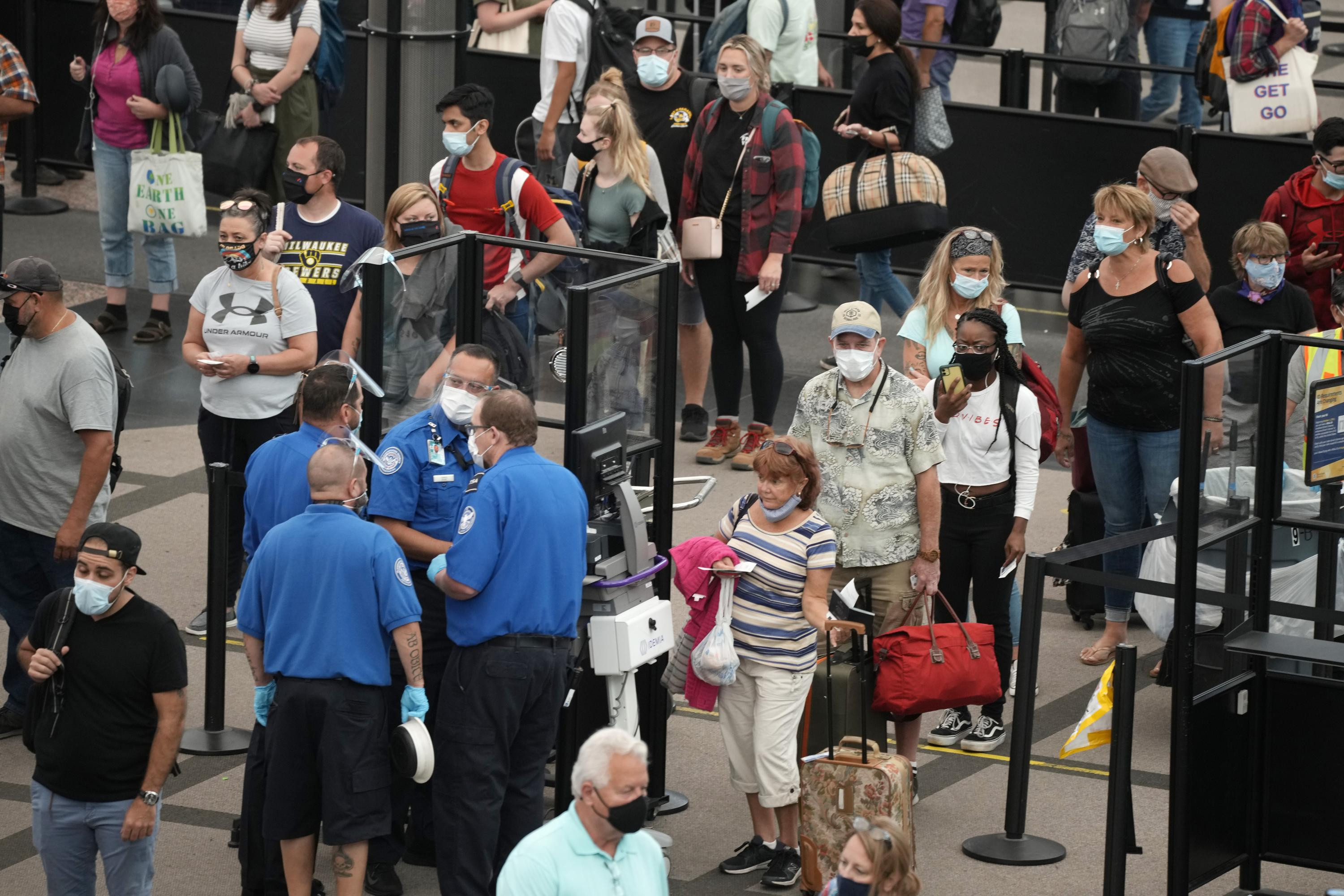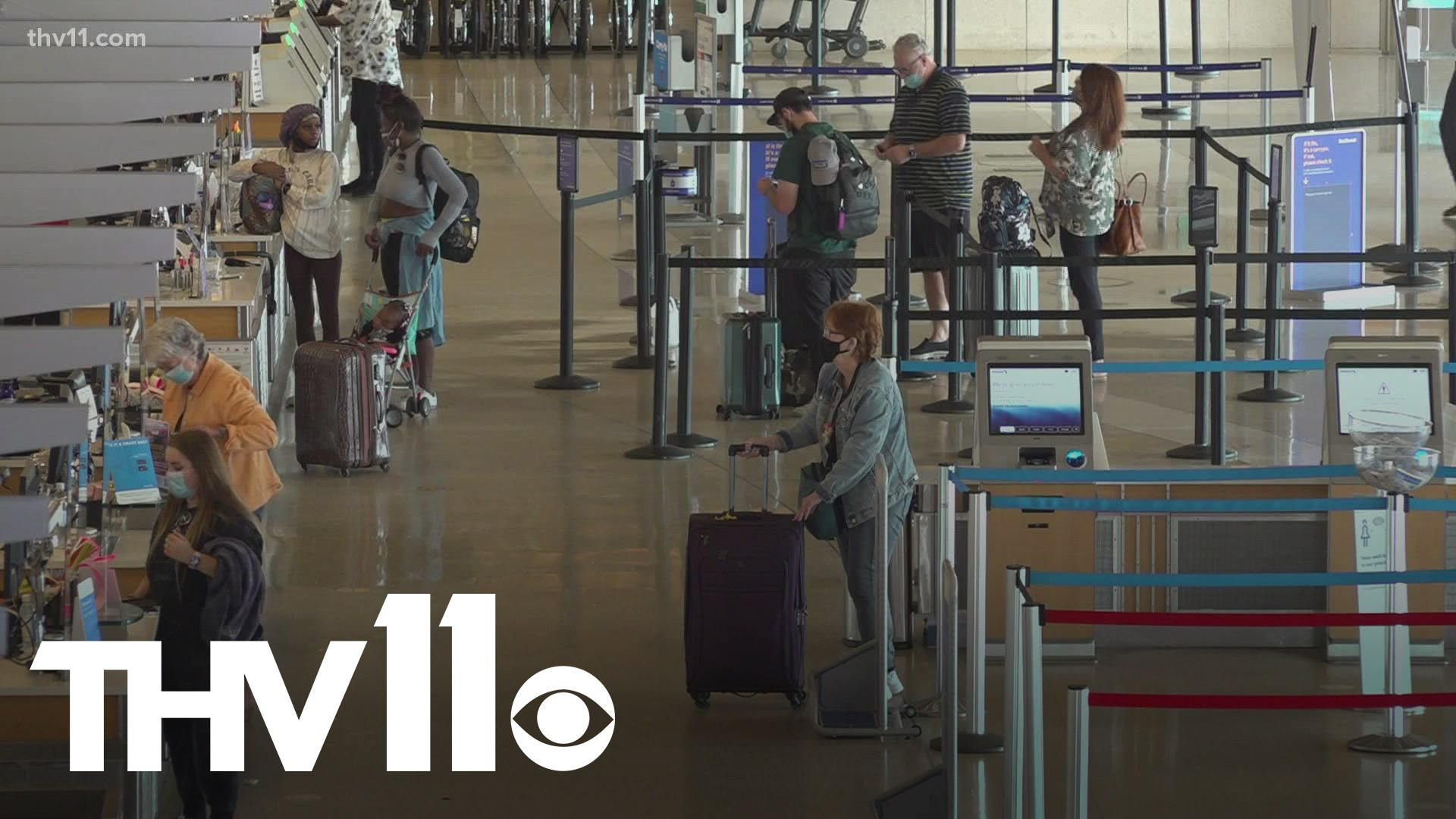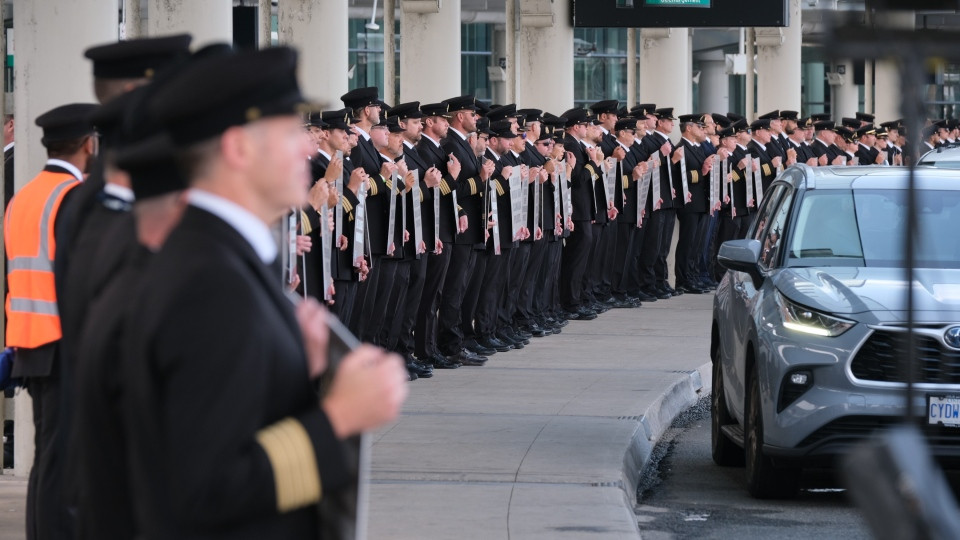The September 11th tragedy undoubtedly reshaped the airline industry. Younger generations haven’t a clue about what air travel was like before the hijackings that killed nearly 3,000 people in the deadliest act of terrorism on American soil. Even older generations may be unaware of changes, such as the history of the Transportation Security Administration and the extra fee placed on airline tickets. Here’s how air travel was redefined in the wake of September 11, 2001.
Security measures evolved with new threats, and so travelers were asked to take off belts and remove some items from bags for scanning. Things that clearly could be wielded as weapons, like the box-cutters used by the 9/11 hijackers, were banned. Two months after the attacks, former president George W. Bush signed legislation creating the Transportation Security Administration, a force of federal airport screeners that replaced the private companies that airlines were hiring to handle security. The law required that all checked bags be screened, cockpit doors be reinforced, and more federal air marshals be put on flights. The TSA is under the Department of Homeland Security, which was also created in the wake of 9/11. It was compiled from 22 federal agencies or departments whose responsibilities ranged from Border Patrol agents on horseback to Federal Emergency Management Agency personnel inspecting damaged homes after hurricanes to Coast Guard personnel teaching boaters about marine safety.
When you buy an airline ticket, you may notice the Passenger Fee, or September 11 Security Fee. The money helps fund TSA. The fee is currently $5.60 per one-way trip in air transportation that originates at an airport in the U.S., except that the fee imposed per round trip shall not exceed $11.20, according to the TSA website.
Before 9/11, it was customary for friends and family to walk their loved ones to the actual gate before they boarded the plane. It was also customary for them to wait at the gate when their loved ones arrived. With all the new security measures, only ticket holders are able to pass through security and head to the gate. There are exceptions with minors who are flying unaccompanied. Some airports are allowing non-travelers to pass through security at certain times during the day, though many have since discontinued the program amid the COVID-19 pandemic. Philadelphia International Airport has the Wingmate Pass, which is a free amenity that gives non-ticketed guests access to the secure side of the airport. With the pass, people accompanying travelers will get to meet them at their gate. Terminal C at Orlando International Airport is open to the public – and you don't even need a boarding pass to access all the new amenities. Approved guests can enter Terminal C with a visitor pass program that lets non-flyers say goodbye to loved ones, grab a bite or stroll through gift shops, according to a press release from MCO.
Making Hijacking a Thing of the Past
Aviation security has experienced a profound transformation over the last two decades. The hijacking of Indian Airlines Flight IC-814 in 1999 and the tragic events of September 11, 2001, were pivotal moments that forced a complete overhaul of safety protocols in the aviation world. In the wake of these events, organizations like the Bureau of Civil Aviation Security (BCAS) in India and the International Civil Aviation Organization (ICAO) globally made sweeping changes to make hijacking either impossible or, at the very least, extremely difficult.
Today, hijacking an aircraft is far more challenging than it once was. This article delves into the major reforms that followed IC 814 and 9/11, examining how these measures have contributed to making air travel significantly safer.
Post-IC 814: Immediate Reforms
On December 24, 1999, Indian Airlines Flight IC 814 was hijacked while flying from Kathmandu to Delhi. The plane was forced to land in Kandahar, Afghanistan, where the hijackers demanded the release of imprisoned militants. The ordeal lasted seven grueling days, ending in the release of three terrorists in exchange for the hostages. This incident exposed serious weaknesses in airport and in-flight security in India. In response to the IC 814 hijacking, BCAS implemented several critical reforms:
The Impact of 9/11 on Aviation Security
The terrorist attacks on September 11, 2001, in which four U.S. airplanes were hijacked and used as weapons, killing nearly 3,000 people, led to a global rethinking of aviation security. Organizations like ICAO and the U.S. Transportation Security Administration (TSA) introduced sweeping, multi-layered reforms aimed at preventing future hijackings.
Post-9/11, technology has played a pivotal role in detecting and deterring security threats. Advanced imaging systems, AI-driven algorithms, and remote monitoring have greatly enhanced aviation security. Technology alone isn’t enough to ensure safety. Human awareness and preparedness are essential components of aviation security. ICAO’s role in setting global security standards became even more crucial after 9/11. The organization introduced Annex 17 to the Chicago Convention, which focuses on security risk management and the harmonization of security practices worldwide.
The COVID-19 pandemic brought new challenges to aviation security, leading to further digitization and reliance on contactless screening and AI technology.
Future Trends in Aviation Security
In the years since IC 814 and 9/11, aviation has become one of the most secure industries in the world. Reinforced cockpit doors, biometric screening, and advanced security protocols have made hijacking nearly impossible. Organizations like BCAS and ICAO continue to lead efforts in developing and maintaining a multi-layered security framework that ensures the safety of passengers and crew alike. While new threats such as cyberattacks and drone-related incidents emerge, ongoing innovation and international cooperation remain key to adapting aviation security for the future.
A Safer Future
The painful lessons from IC 814 and 9/11 serve as powerful reminders of the vulnerabilities within the aviation system. However, the advancements made in their aftermath have transformed the industry, bringing us closer to achieving the goal of a truly hijack-proof aviation environment. With continuous vigilance, evolving technology, and robust global partnerships, the skies will continue to grow safer for everyone.


















